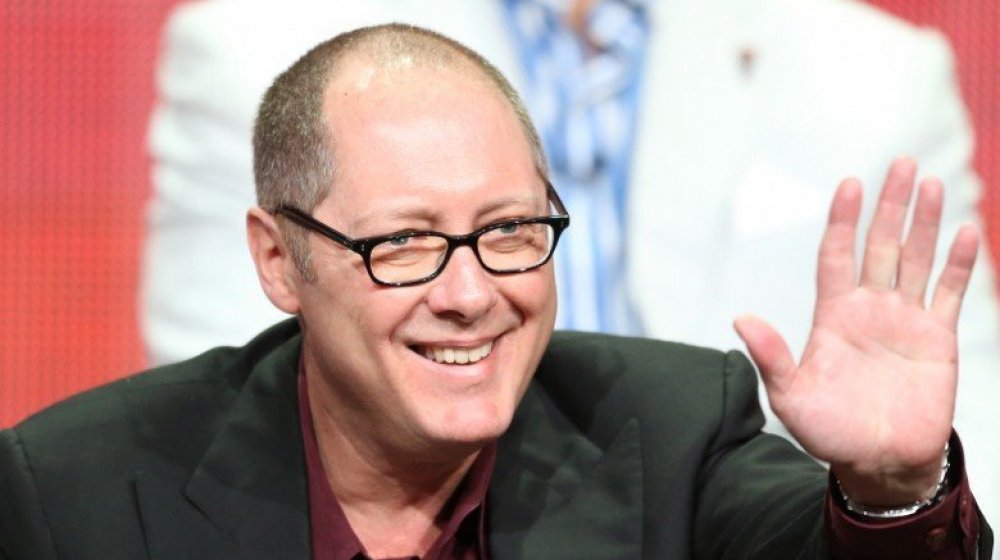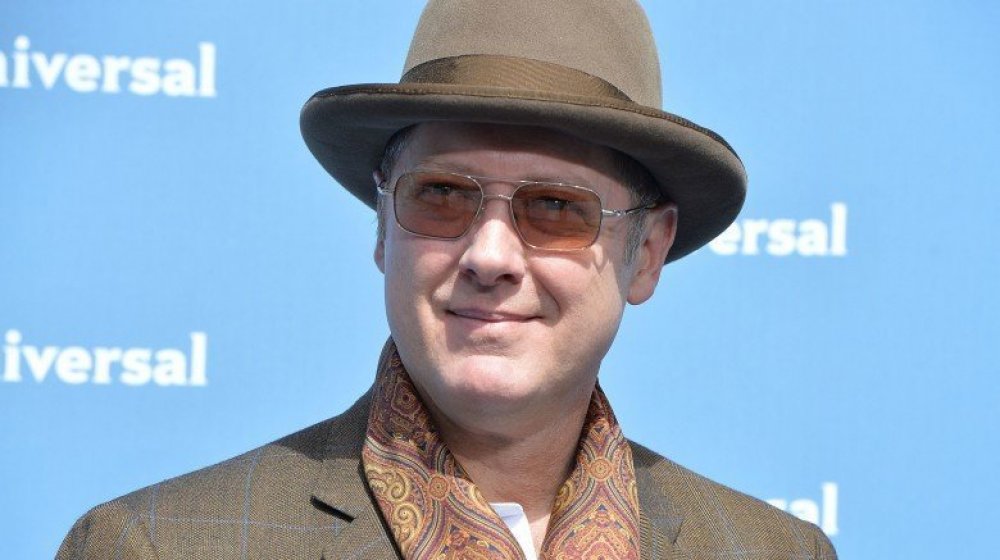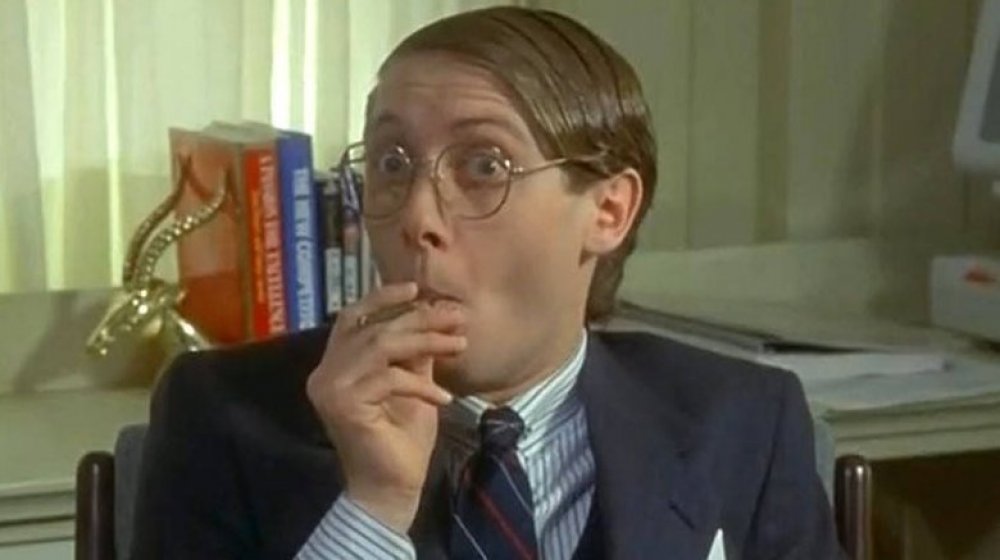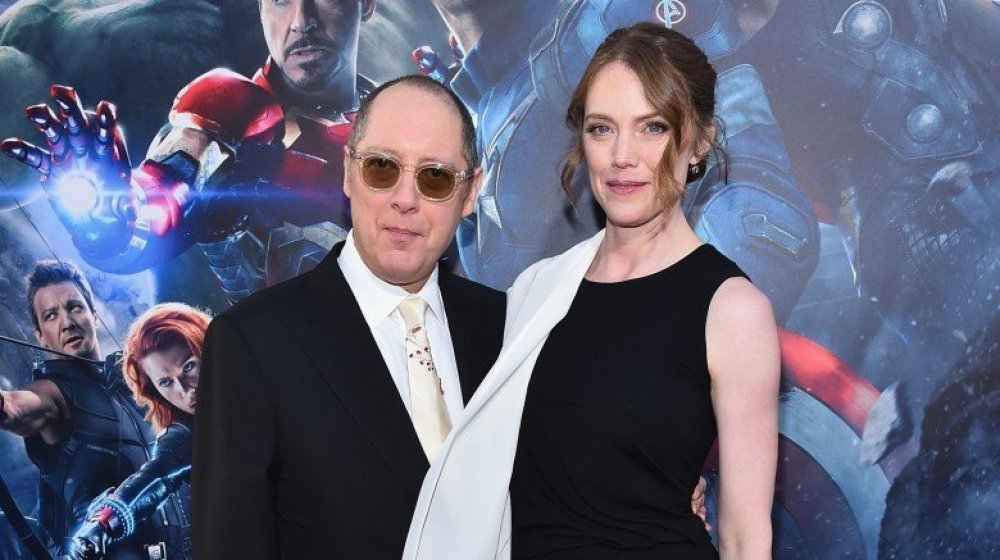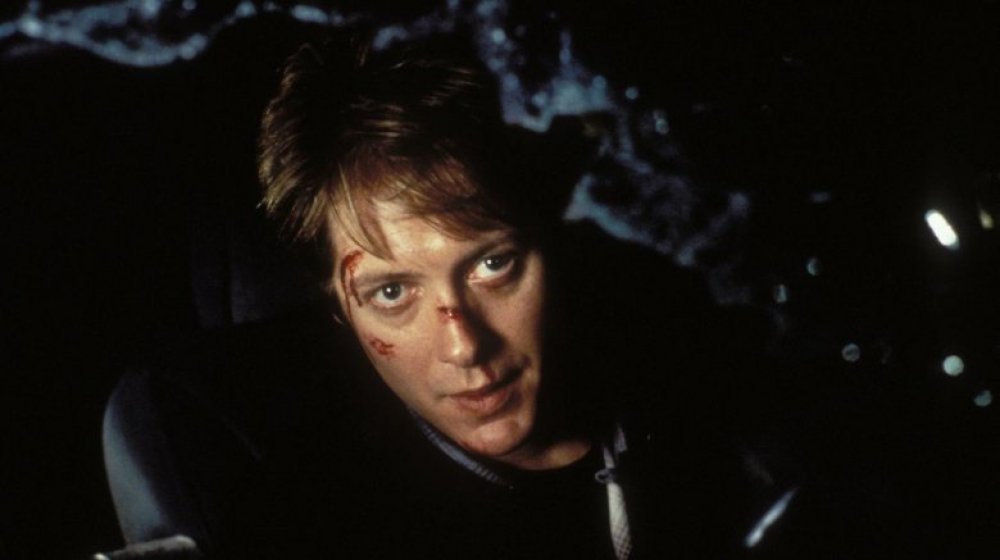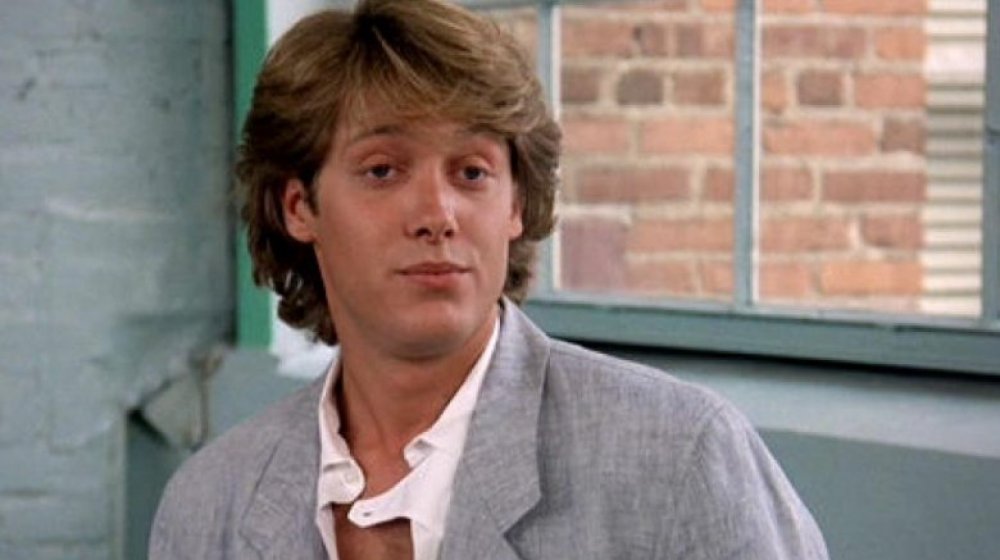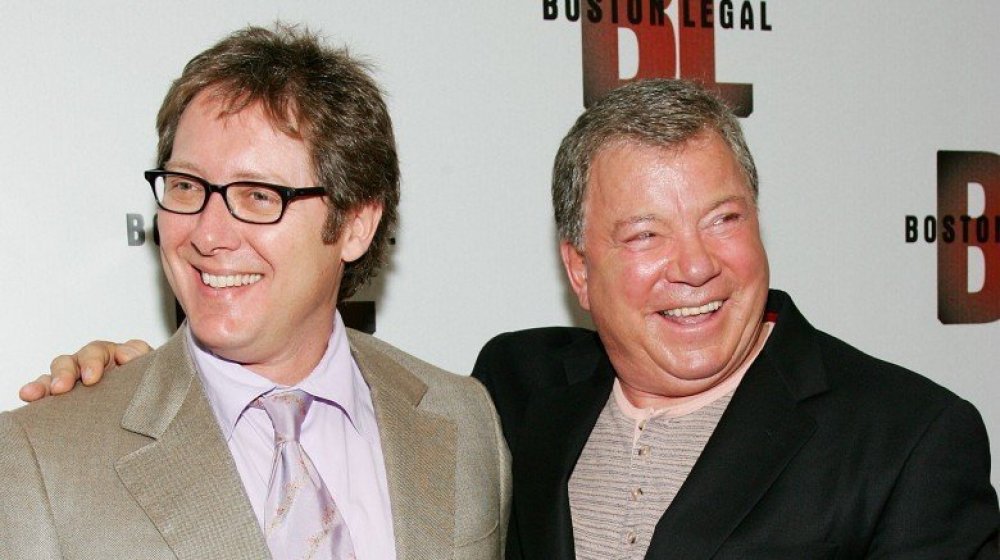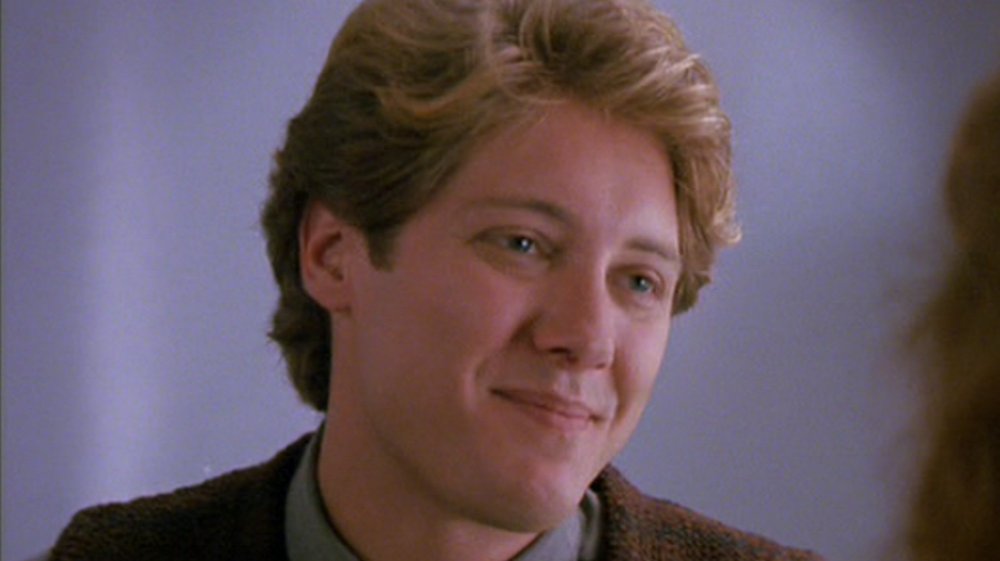Why James Spader Doesn't Get Many Movie Offers Anymore
After a few smaller roles in movies and TV shows in the early 1980s, James Spader made a name for himself and carved out a silver screen niche as a portrayer of aloof, good-looking, and often slimy malcontents and ne'er-do-wells. In 1986, he portrayed slimy rich teen villain Steff in Pretty in Pink, leading to a long association with the "Brat Pack" of other actors from the extended John Hughes universe. As other Brat Packers' careers faded away or evolved, Spader distinguished himself as the serious actor of the bunch, consistently popping up in challenging, provocative, and interesting movies, such as Sex, Lies, and Videotape, Less Than Zero, Crash, and Secretary.
In recent years, the actor has been a mainstay of episodic television series like Boston Legal and The Blacklist, leaving a quirky, Spader-sized hole in the world of film. Here's why the performer doesn't seem to appear in too many movies anymore.
He's transitioned completely to TV
James Spader broke out as a movie star in the mid-1980s, but before that, he honed his chops with guest-star work on TV shows. After Pretty in Pink came out, he focused mostly on films, as Hollywood was still a stratified place where there were camps of "TV actors" and "movie actors" that rarely mingled. But the entertainment industry evolved, and TV started to offer projects and roles as prestigious as the film world could.
In 2003, Spader joined the cast of the acclaimed ABC legal drama The Practice as attorney Alan Shore, a role he'd play until 2004, when The Practice became Boston Legal, essentially a vehicle for Spader. Over the course of the two shows, Spader won three Emmy Awards for portraying Shore, and he's since seen his fair share of TV success with subsequent major roles on The Office (as temporary Dunder-Mifflin boss Robert California) and as law-assisting serial killer Raymond "Red" Reddington on The Blacklist. Of that long-running series, he told The Guardian, "I wanted to find something which was going to mix irreverence with drama and a character who would continue to surprise me. On a series where you do 22 episodes, that's such an important thing."
It sounds like Spader is creatively fulfilled with his TV gig and doesn't necessarily need to pursue big-screen projects.
He's never seemed interested in superstar status
With a few odd exceptions, Spader's filmography consists of movies that were either destined for the arthouse (Dream Lover, Crash, Secretary) or featured him in a supporting role, and as a result, he's never been seen as a truly bankable actor — or even necessarily as a leading man. As a young actor in the 1980s, he was caught between archetypes: He possessed teen-idol looks but made the career choices of an eccentric, veteran character actor who chose projects based on their merits, not their commercial appeal. Such pickiness (or artistic integrity) may have prevented him from doing a lot of potentially successful movies.
The result: He wound up playing charismatic villains and conflicted anti-heroes. While he's definitely led films, Spader has tended to pick projects that land outside the mainstream, which is great for building an acclaimed, eclectic portfolio but doesn't make you the first guy casting directors think of when they're bringing their next blockbuster to life. His most commercially successful release, 2015's Avengers: Age of Ultron, doesn't even feature Spader's face onscreen — he played the voice of Ultron, the sentient A.I. bent on destroying the human race.
He took time off for family
There is more to life than acting, and actors must live life a little to inform their work playing empathetic characters. To that end, Spader started a family with his first wife, decorator Victoria Kheel, in the late '80s, bringing two sons into the world by 1992. When his kids were young in the 1990s, Spader made time for them, declining projects that came his way so as to spend every summer with his family and only taking roles that paid well when he'd start to run out of money.
Spader's career from the mid-'90s to the early 2000s reflects this self-imposed creative slump. Between the acclaimed Sex, Lies, and Videotape and the 2002 tawdry arthouse hit Secretary, Spader didn't appear in too many memorable movies besides Stargate and Wolf. Getting over a slump, or navigating a fallow period, can be tough for any actor, let alone when they choose that path. Spader's wish to balance his work and home life could have pegged him as a guy who wasn't a team player, or as an actor who lacked the ambition, hustle, and steely-eyed drive it takes to become a movie star.
He hasn't been the best at managing his career
James Spader has enjoyed such envious longevity that it might be easy to assume he's always had a plan for his career, but by his own admission, he could have done a lot better in that regard. "There are some actors who are very good at developing things," he told The Guardian in 2016. "Who have... 'things in the pipeline.' I am abysmal at that kind of thing, loathe it and am a terrible planner. Unless I'm showing up on the set and acting I prefer to have nothing to do with the actual business of being an actor."
That careless streak extends to his finances, too — and has potentially led to Spader taking work as part of projects that he might not have accepted otherwise. "I am not very responsible economically," he admitted. "I have a history working on films for years and years, and by the time I was starting the next film I was starting from zero again."
He's notoriously private
Unlike some of his Brat Pack comrades, Spader never really weathered a sex scandal or was a "celebrity" in the tabloid-selling, gossipy sense of the world. "My personal life is not for public consumption," he has stated in several interviews when questioned about it.
Instead, it seems that Spader would rather pursue the darker side of his personality in the parts that he chooses. "I look for that with my friends, my family, we're very eccentric ... and I think probably I have looked for those characters to have as my friends as well in the work that I do," he told Stephen Colbert.
He didn't set out to be an actor
Hollywood avenues opened up for Spader pretty quickly in his career, but as he tells it, he only ever viewed acting as a "hobby" until it suddenly started paying his bills. Unlike countless peers who dreamed of superstardom, Spader insists he fell into the business almost by accident.
"I had this hobby, acting, alongside this string of part-time jobs. But mostly, I had this sort of fantasy that I was going to join the New York Police Department or get together with this guy who likes trucks or get a crew together and knock off Tiffany's," he told the Boston Globe. "Then something happens, and all of a sudden you start to get paid for your hobby. Suddenly you're not a messenger anymore, or mopping floors or shoveling [manure] or driving a truck or whatever the hell it is, and you're getting paid for your hobby. I just became an actor."
He's got a reputation as a difficult actor
Known for playing odd characters, Spader himself is reputedly a bit strange, which can affect a professional work environment and lead to a lack of repeat business with the same producers and directors. For one thing, he doesn't like to watch people eat. "Our craft service table was located near the stage entrance, so he had to avoid walking by and watching people licking their fingers or spreading butter on a bagel," his Boston Legal co-star William Shatner told Rolling Stone. During a shoot for The Blacklist, Spader insisted that his character would spend days hiding out in a synagogue, which required major rewrites and reworking the shooting schedule.
On the set of Secretary, he shared a trailer with co-star Maggie Gyllenhaal, their dressing rooms separated by a flimsy wall. Spader would send a production assistant when he needed to speak with Gyllenhall, who said she would walk "two feet" to Spader's dressing room, where he'd invite her in and give her a piece of chocolate, a daily acting preparation ritual. Though to outsiders it might seem like diva behavior, Spader claims that his demanding, if not outlandish, on-set behavior informs his work and enhances its quality. "Because I have to perform it," he said.
James Spader might be typecast
Lasting success in Hollywood – fame, fortune, and being a household name renowned for one's work in numerous critical and commercial hits — can come with a caveat. Actors do what they do because they're artists, and portraying as many different characters as possible drives them. But once many actors receive a certain character type and execute it well, it seems like they only ever play those individuals, and then they wind up typecast. Not only do they not get to stretch their creative muscles, but they wind up not getting offers to play other roles ... or their specialty if such parts aren't up for grabs. This could be the fate of James Spader.
The public (and casting directors) generally see him as an '80s movie guy, what with his roles in iconic, classic films of the era constantly rerun on TV over the decades, like Diner, Baby Boom, Mannequin, Less Than Zero, Wall Street, and most especially Pretty in Pink. It was in the latter where Spader played his most James Spaderish role of all time: smug, entitled, and mean rich guy Steff. Ever since, Spader has played a lot of odious and off-putting jerks, like a serial killer on The Blacklist, a conniving lawyer on Boston Legal, a man with dark desires in Secretary, and an interstellar supervillain in Avengers: Age of Ultron. At any rate, as of November 2020, the number of movie projects in the works for James Spader: zero.
